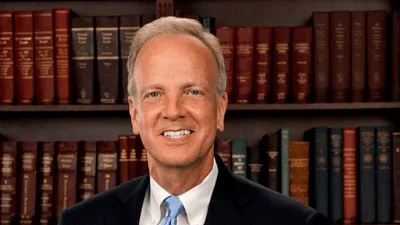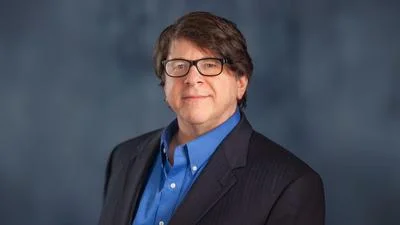The Congressional Record is a unique source of public documentation. It started in 1873, documenting nearly all the major and minor policies being discussed and debated.
“SENATE RESOLUTION 118--HONORING ARMY CHAPLAIN EMIL J. KAPAUN” mentioning Roger Marshall was published in the Senate section on page S1574 on March 16.
Of the 100 senators in 117th Congress, 24 percent were women, and 76 percent were men, according to the Biographical Directory of the United States Congress.
Senators' salaries are historically higher than the median US income.
The publication is reproduced in full below:
SENATE RESOLUTION 118--HONORING ARMY CHAPLAIN EMIL J. KAPAUN
Mr. MARSHALL (for himself, Mr. Moran, Mr. Blunt, and Mr. Hawley) submitted the following resolution; which was considered and agreed to:
S. Res. 118
Whereas Chaplain (Captain) Emil J. Kapaun was born to parents of German-Bohemian ancestry in the rural farming community of Pilsen, Kansas on April 20, 1916;
Whereas Chaplain Kapaun studied classics and philosophy and graduated from Conception College in Conception, Missouri in June 1936 and Kenrick Seminary in St. Louis, Missouri in 1940;
Whereas Chaplain Kapaun was ordained a Catholic priest of the Diocese of Wichita in 1940;
Whereas Chaplain Kapaun was appointed auxiliary chaplain in 1943 at the Herington Army Airfield near Herington, Kansas;
Whereas, in 1944, Chaplain Kapaun entered the Army Chaplain Corps and, following Army Chaplaincy School at Fort Devens, Massachusetts, and a post at Camp Wheeler Georgia, Chaplain Kapaun served the troops in World War II in the Burma and India Theater until 1946;
Whereas, in 1948, Chaplain Kapaun returned to active duty in the Army Chaplain Corps;
Whereas Chaplain Kapaun mobilized in support of the Korean conflict in 1950, and served as a chaplain with the 1st Cavalry Division in Japan and Korea;
Whereas Chaplain Kapaun was taken as a prisoner of war by Chinese forces on November 2, 1950, during the Battle of Unsan;
Whereas during the fight, which started on November 1, 1950, Chaplain Kapaun moved repeatedly under enemy direct fire to rescue wounded soldiers outside the perimeter of his battalion and successfully--
(1) negotiated with the enemy for the safety of wounded soldiers of the United States;
(2) knocked aside the rifle of a Chinese soldier who was about to execute Staff Sergeant Herbert Miller; and
(3) rejected multiple opportunities for escape and instead volunteered to stay and care for the wounded;
Whereas, during the time Chaplain Kapaun spent in captivity, Chaplain Kapaun frequently risked his life by sneaking around the camp after dark, foraging for food, building fires, caring for the sick, and encouraging his fellow soldiers to sustain their faith and their humanity, and Chaplain Kapaun risked punishment by leading prayers and spiritual services for the other prisoners of war;
Whereas Chaplain Kapaun died of illness and maltreatment on May 23, 1951;
Whereas, in 1953, Chaplain Kapaun's surviving fellow prisoners of war were released and began to share stories of the role of Chaplain Kapaun in their survival;
Whereas, in 1956, Chaplain Kapaun Memorial High School (now known as Kapaun Mt. Carmel Catholic High School) was opened and named after Chaplain Kapaun;
Whereas, in 1993, Pope John Paul II declared Chaplain Kapaun a Servant of God, the first stage on the path to canonization and the Holy See continues investigations into possible canonization;
Whereas, in 2013, President Barack Obama posthumously awarded Chaplain Kapaun the Medal of Honor;
Whereas, upon bestowing the highest award for valor in the United States military, President Obama stated that Chaplain Kapaun was ``an American soldier who didn't fire a gun, but who wielded the mightiest weapon of all: the love for his brothers so powerful that he was willing to die so that they might live'';
Whereas, in addition to the Medal of Honor, Chaplain Kapaun has been awarded the--
(1) Distinguished Service Cross;
(2) Bronze Star Medal with ``V'' Device;
(3) Legion of Merit;
(4) Prisoner of War Medal;
(5) Asiatic-Pacific Campaign Medal with 1 Bronze Service Star for Central Burma Campaign;
(6) World War II Victory Medal;
(7) Army of Occupation Medal with Japan Clasp;
(8) Korean Service Medal with 2 Bronze Service Stars;
(9) National Defense Service Medal; and
(10) United Nations Service Medal;
Whereas there are more than 7,800 service members who served in the Korean War who remain unaccounted for;
Whereas, in 1956, 867 sets of unidentified remains were interred as Unknowns at the National Memorial Cemetery of the Pacific in Honolulu, Hawaii;
Whereas, in 2019, the Defense POW/MIA Accounting Agency began disinterring 652 sets of unknown Korean War remains at the National Memorial Cemetery of the Pacific; and
Whereas, in 2021, the remains of Chaplain Kapaun were exhumed from the National Memorial Cemetery of the Pacific and identified using dental records and DNA: Now, therefore, be it
Resolved, That the Senate--
(1) honors and recognizes Chaplain (Captain) Emil J. Kapaun for--
(A) his heroic service to the United States of America and the United States Army;
(B) his heroism, patriotism, and selfless service; and
(C) the extraordinary courage, conviction, and faith with which he provided comfort and reassurance to his fellow soldiers;
(2) expresses condolences to the family of Chaplain Emil Kapaun;
(3) respectfully requests that the Secretary of the Senate transmit an enrolled copy of this resolution to the family of Chaplain Emil Kapaun; and
(4) will never cease in the task of recovering and remembering all prisoners of war and soldiers missing in action from World War II, the Korean conflict, the Vietnam era, hostilities during the Cold War, the Persian Gulf War, Operation Enduring Freedom, Operation Iraqi Freedom, Operation New Dawn, Operation Inherent Resolve, and other contingency operations taking place in the Middle East since September 11, 2001.
____________________



 Alerts Sign-up
Alerts Sign-up